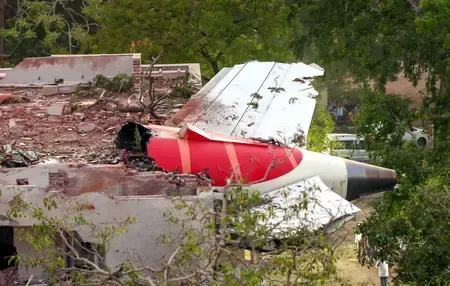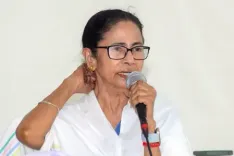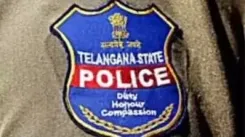Is It Justified to Blame the Air India Crew for the Crash?

Synopsis
Key Takeaways
- Pilot unions condemn blame on crew.
- Media speculation criticized as irresponsible.
- Initial findings suggest engine thrust loss.
- Call for inclusion of pilots in investigation.
- Final report may differ from preliminary findings.
New Delhi, July 13 (NationPress) India's pilot unions have rebuked the 'irresponsible speculation' surrounding the Air India Boeing Dreamliner crash in Ahmedabad, as various media outlets suggest the crew may be at fault for this unfortunate event.
The Indian Commercial Pilots' Association (ICPA) on Sunday denounced 'claims of pilot suicide' as unfounded and insensitive, asserting that the crew acted according to their emergency training.
“Such speculation is not only irresponsible but also cruel. There is no foundation for such allegations at this point... making serious claims based on incomplete facts is not just reckless, it is profoundly hurtful,” stated ICPA in a release.
The Airline Pilots' Association of India (ALPA) has already criticized the initial investigation report, labeling the tone of the inquiry as biased towards pilot error and lacking transparency. They have requested that line pilots be included as observers in the investigation to guarantee transparency and accountability.
The pilots' unions have also raised concerns regarding the selective media leaks suggesting pilot error ahead of the preliminary report's release.
A preliminary report issued by the AAIB on Saturday disclosed that both engines of the Air India Dreamliner lost thrust after the two fuel cut-off switches shifted from the ‘RUN’ to the ‘CUTOFF’ position mere seconds after take-off.
Insights from the cockpit voice recorder indicated that one pilot advised the other that he had not turned off the fuel control switches. The switches were then returned to the RUN position just prior to the crash.
Former AAIB director Aurobindo Handa noted that while the report provides a factual timeline, it fails to pinpoint what caused the failure. “Although the report is available, it merely presents the facts... it does not provide conclusive insights into those critical 30 seconds,” he explained.
He added that preliminary and final findings in air crash investigations often differ significantly, indicating that a more thorough technical examination is still necessary. “We have observed that initial and final findings tend to vary in most investigations,” he remarked.
Union Civil Aviation Minister Ram Mohan Naidu also stated on Saturday that the Aircraft Accident Investigation Bureau's report on the Air India crash is based on preliminary findings, urging caution against drawing any conclusions until the final report is published.






